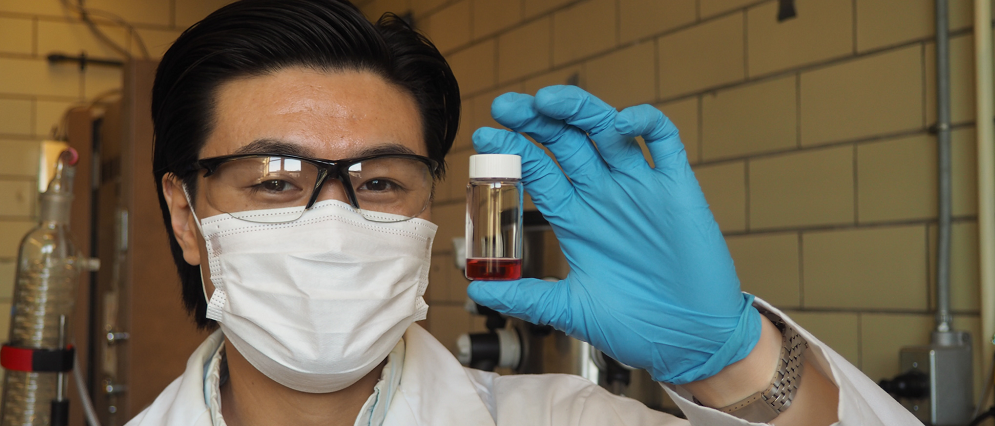
Photo by Tyler Irving
Paul Chen graduated from the Nanotechnology Engineering (NE) Program in 2016. He has many fond memories of his time in the program and maintains connections with many of his classmates, instructors and program faculty from his undergrad years. He reflects on his time at the University of Waterloo,
The Waterloo undergrad experience, especially in the Nanotechnology Engineering Program, is so unique, and it’s very much a part of my DNA.
After graduating from the University of Waterloo Chen went on to do his Ph.D. His Ph.D. research is focused on studying how atoms move to form metal nanoparticles for use in biomedical applications. When the pandemic struck in 2020 Chen pivoted his research to aid in the global race to investigate how the COVID-19 virus transmits.
His team examined different aspects of the transmission of COVID-19 including being able to model that the virus spreads through aerosol transmission. His research also identified how variation in the amount of virus in people infected with COVID-19 facilitated significant differences in individual infectiousness, which was related to superspreading events unique to this pandemic.
His groundbreaking research caught the attention of people at The Schmidt Science Fellowship. This prestigious scientific Fellowship is part of a philanthropic initiative launched by former Google CEO Eric Schmidt, and provides postdoctoral candidates with an annual stipend of $100,000 to pursue their research for up to two years.
According to Simon Vaughan, Director of Admissions for the Schmidt Science Fellows,
We look for a wide range of characteristics in our Fellows. These include an outstanding academic record, a passion for their chosen area of work, and a wider intellectual and social curiosity. We want to see a commitment to interdisciplinarity and collaboration that drives a desire to make a positive impact in both science and society.
Chen certainly fits the bill. Chen’s expertise in working with nanomaterials and contributing to an interdisciplinary team has its roots in his experience as an undergrad student here at the University of Waterloo. Chen commented,
Nano is a field that inherently spans the traditional disciplines, like biology, chemistry, materials science, physics, and more. As such, the NE program educates its students broadly and touches on foundational aspects of many fields. During undergrad, I learned how different fields think differently, and the breadth has given me the background to begin to explore the space between disciplines.
Chen would like to continue to develop approaches to discover materials that can improve healthcare globally. He feels very fortunate to receive this fellowship as it will allow him to engage in high-risk interdisciplinary research and collaborate with the diverse Schmidt Science Fellow community.